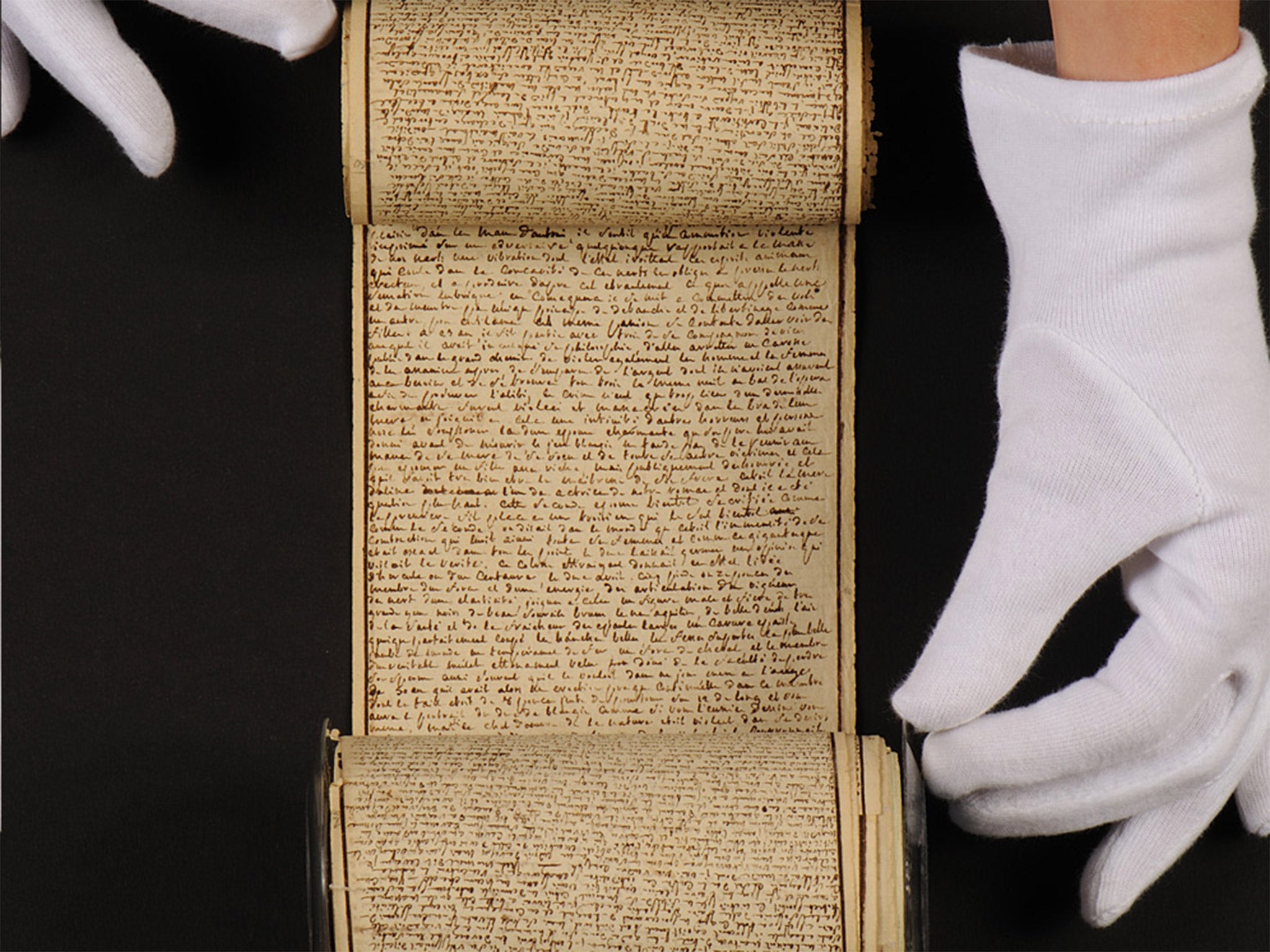Albert Einstein's notebook and Dead Sea Scrolls fragments among historic manuscripts struggling to find buyer
The value of the collection amassed by the Aristophil group has been estimated at hundreds of millions of euros

Your support helps us to tell the story
From reproductive rights to climate change to Big Tech, The Independent is on the ground when the story is developing. Whether it's investigating the financials of Elon Musk's pro-Trump PAC or producing our latest documentary, 'The A Word', which shines a light on the American women fighting for reproductive rights, we know how important it is to parse out the facts from the messaging.
At such a critical moment in US history, we need reporters on the ground. Your donation allows us to keep sending journalists to speak to both sides of the story.
The Independent is trusted by Americans across the entire political spectrum. And unlike many other quality news outlets, we choose not to lock Americans out of our reporting and analysis with paywalls. We believe quality journalism should be available to everyone, paid for by those who can afford it.
Your support makes all the difference.Featuring fragments of the Dead Sea Scrolls, sheet music signed by Mozart and Albert Einstein’s notebook, it is certainly an eclectic collection.
But this treasure trove of more than 130,000 historic manuscripts – seized by the French courts from an investment firm now under investigation for fraud – appears to be struggling to find a buyer.
The value of the collection amassed by the Aristophil group has been estimated – by some – at hundreds of millions of euros, and the liquidators are determined that it should be sold together.
So anyone wanting an original of Charles Darwin’s On the Origin of Species will also have to cough up for Louis XVI’s last letter to the French people before he was executed and Honoré de Balzac’s journals.
Initial approaches to specific potential buyers appear to have fallen flat, with a spokesman for the sale saying they had now “decided to widen the scope”.
The buyer has to present “serious guarantees regarding his ability for the custody, safekeeping, management, valorisation, sale or redemption of this outstanding collection,” according to the terms of the sale document.
The sellers are acutely aware that a flood of the documents could cause a collapse in prices in the niche market of historical documents. The spokesman said: “The pieces could not flow on to the market altogether at the same time.”
It is believed that close to 600 institutions and potential private investors have now been sounded out about a bid. Although the collection would enrich the home of any billionaire, it is hoped that a museum, foundation or gallery will come forward.
But it appears that interest has not been overwhelming. The original deadline for bids, ends on Wednesday but a French court hearing is expected to extend that date.
Sources in the art world suggest the collection may be overvalued, and that a top asking price of €100m might be more realistic.
“Yes, 5 per cent of the collection is extraordinary, but the remaining 95 per cent is insignificant,” one antiquarian bookseller told the Financial Times.
In August last year, the Commercial Court of Paris ordered the liquidation of the collection gathered by Aristophil between 2003 and 2015.
Gerard Lhéritier set up Aristophil in 1990 and it became dedicated to buying manuscripts and original historical documents from collectors and specialist libraries. Aristophil sold shares to 18,000 investors, on the promise of strong returns.
But in November 2014, close to 100 French anti-fraud officers raided Aristophil’s Paris headquarters and seized the money in the accounts. Mr Lhéritier has been “placed under formal investigation” for “dishonest commercial practices, fraud in an organised gang , money laundering, embezzlement and presenting falsified accounts”.
He denies the charges and calls the liquidation a “complete mess, set up by a small gang of civil servants”.
Join our commenting forum
Join thought-provoking conversations, follow other Independent readers and see their replies
Comments